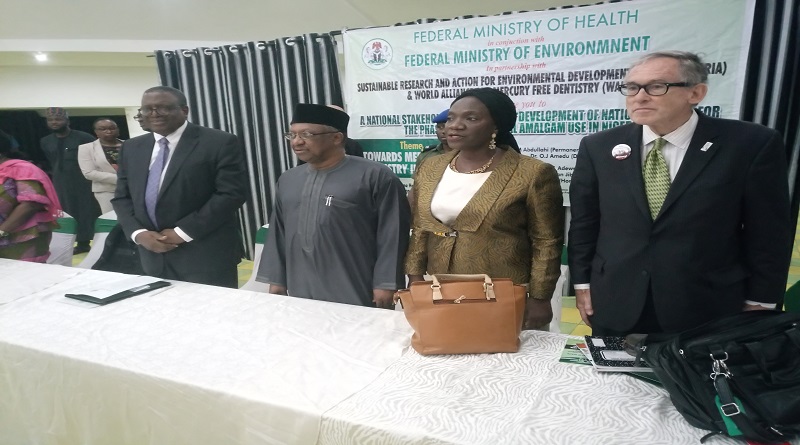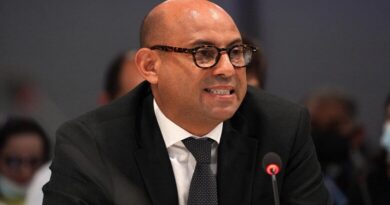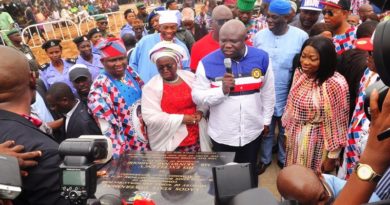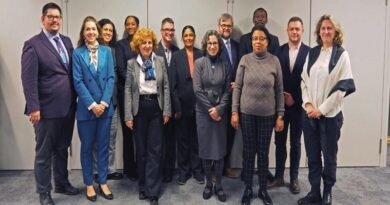Minamata Convention @ four: Campaigners highlight achievements, challenges
To mark the fourth anniversary of the coming into force of the Minamata Convention on Mercury, a global treaty that seeks to make mercury history, campaigners under the aegis of World Alliance for Mercury-Free Dentistry (WAFMD) have highlighted some of the achievements of the Convention described as ‘game-changer’ in Africa and across the world.
The Convention, came into force on the 16th August 2017 after it was ratified by more than 55 Parties to the Convention. Four years after, 132 Parties have submitted their instrument of ratification or accession to the Convention.
Similarly, three Conference of Parties (COP) to the Convention meetings have been held in 2017, 2018 and 2019 respectively. Due to the COVID-19 pandemic, the Conference could not hold in 2020.
Since the Convention came into force, efforts have been on by governments, development organisations, and civil society groups to address mercury pollution to the environment. In some countries, government have prioritized mercury-free dentistry in the Minamata process while others are making progress in one area or another.
In his comment on the fourth anniversary of the convention, President, World Alliance for Mercury-Free Dentistry, Attorney Charlie Brown, described the Convention as a game-charger. He said, “With the Minamata Convention on Mercury as the game-changer, Africa is on the march to mercury-free dentistry – via civil society, via governmental action, and via joint action as a region. With NGOs coordinating their ambitious activism via the African Center for Environmental Health and with dentists led by Dentists for a Mercury-Free Africa, civil society is initiating the transition away from amalgam in Eastern, Northern, Western, Central, and Southern Africa.
“Civil society consensus has emerged that amalgam use must end – from Cameroun to Nigeria to Guinea, and from Tunisia to Kenya to Zambia. Governments have prioritized mercury-free dentistry in the Minamata process, leading to breakthroughs like the Tanzania Guidelines and the end of amalgam for children in Mauritius. The African continent, collectively, is leading the charge at the Minamata Convention for a treaty Amendment which will phase out amalgam worldwide during the 2020s.”
Representative of the Vice-President for Africa WAFMD, Griffins Ochieng said in Kenya, the adoption of Minamata Convention catalysed action towards mercury free dentistry especially the attitude change of dentists.
“When World alliance started work in Kenya, majority of the dentists were resistant to change and were defensive, but with persistence engagement with the Ministry of Environment and Forestry in Kenya, and good cooperation CEJAD had with the Ministry, also the focal point of the Convention, now there is a common understanding between the stakeholders on the need to phase down and phase out dental amalgam especially the use in children and pregnant women. In 2019, CEJAD organized a consultative workshop with the Kenya Dental Association and Ministry of Health (Chief Dentist) to develop guidelines on phasedown of dental amalgam and national oral health policy which covers dental amalgam phase down. In Africa, Tanzania and Mauritius, for example, have already taken step – to ban amalgam use, as of 2023, to all women of childbearing age”, says Griffins Ochieng.
Executive Secretary, Sustainable Research and Action for Development (SRADev Nigeria), the focal organization for Minamata Convention in Nigeria, Dr. Leslie Adogame, said major achievements in the country were steady increased awareness amongst key national stakeholders to formulation of a draft policy on dental amalgam phase out by the Federal Ministry of Health.
He said, “The coming of the Minamata Convention on Mercury in Nigeria in 2018 has been a major turning point in civil society’s global to local advocacy. The World Alliance/SRADeV Nigeria coalition in collaboration with key stakeholders took up this campaign (past 7 years) not only to ensure that Nigeria emerges dental amalgam-free, but also to implement the dental amalgam phase out measures of the Minamata Convention. In fact, since signing the ‘Abuja Declaration’ in 2014 in Nigeria by over 30 civil societies endorsement, calling for Africa to be the first continent on the planet to end the use of mercury in dental care. “The campaign pioneered by SRADeV Nigeria with other civil societies recognised that Nigeria remains a major focus for Africa transition and has made painstaking strides in leading Nigeria towards ‘glocalization’ of mercury-free dentistry initiative”.
In Nigeria today, “the discourse moved though initially slowly from the era of controversial discourse to that of scientific factual conviction then fast to agenda setting and action plan towards phase out of mercury amalgam”. Major achievements were from steady increased awareness amongst key national stakeholders to formulation of a draft policy on dental amalgam phase out by the Federal Ministry of Health. Currently, all dental practitioners under the auspices of the Nigeria Dental Association (NDA) are unanimous on the need to transit to mercury-free dentistry in Nigeria within the shortest possible time. For example, at its last annual general meeting resolution in 2020, “NDA adopted 31st January 2022 for phase out of dental Amalgam among the vulnerable population (children, pregnant and breastfeeding women) and 31st December 2024 for total phase out of Dental Amalgam use from dental practice in Nigeria among all categories of dental patients”. For me, this is a major achievement at this 4th anniversary.
Executive Secretary of the Convention, Monika Stankiewicz, said, “An anniversary is always a moment of reflection and inspiration. Before its birth, the Minamata Convention was a promise to build a better, healthier world. Four years later, 132 parties and counting are working together tirelessly to keep this promise and make mercury history despite the coronavirus pandemic.”
“It is exciting to see how far we have come in such a short time and to know how many great possibilities lie ahead of us,” said Rosa Vivien Ratnawati, COP-4 President and Indonesia’s Director-General for Solid Waste, Hazardous Waste and Hazardous Substances Management at the Ministry of Environment and Forestry.
The Minamata Convention helps countries restrict the use of mercury, adopt non-toxic alternatives to the element, and eliminate mercury pollution, protecting the environment and potentially millions of lives.
The fourth meeting of the Conference of the Parties to the Minamata Convention on Mercury will be organized in two segments: the first segment to be held online from 1 to 5 November 2021, and the second segment to take place in-person in the first quarter of 2022 in Bali, Indonesia.




